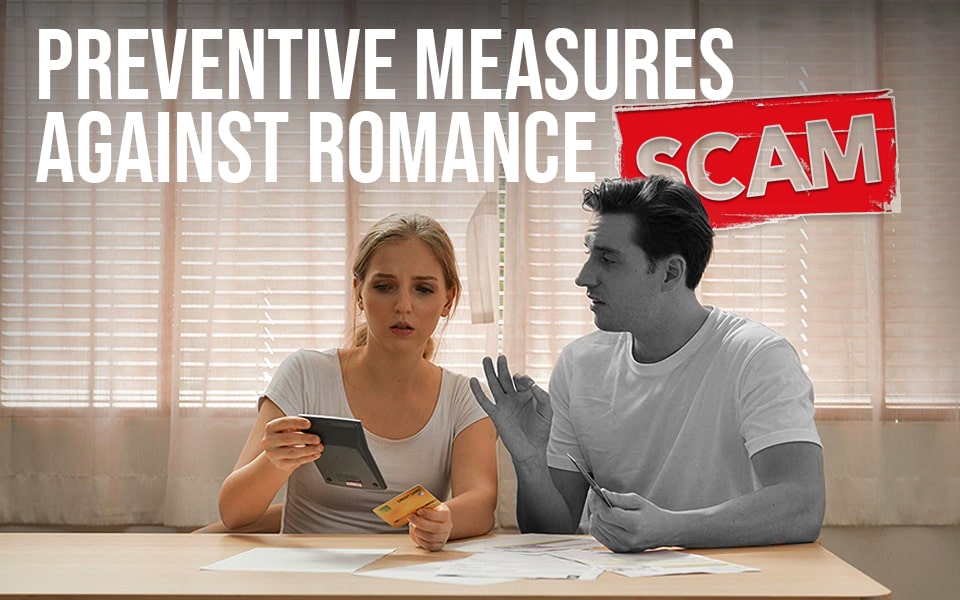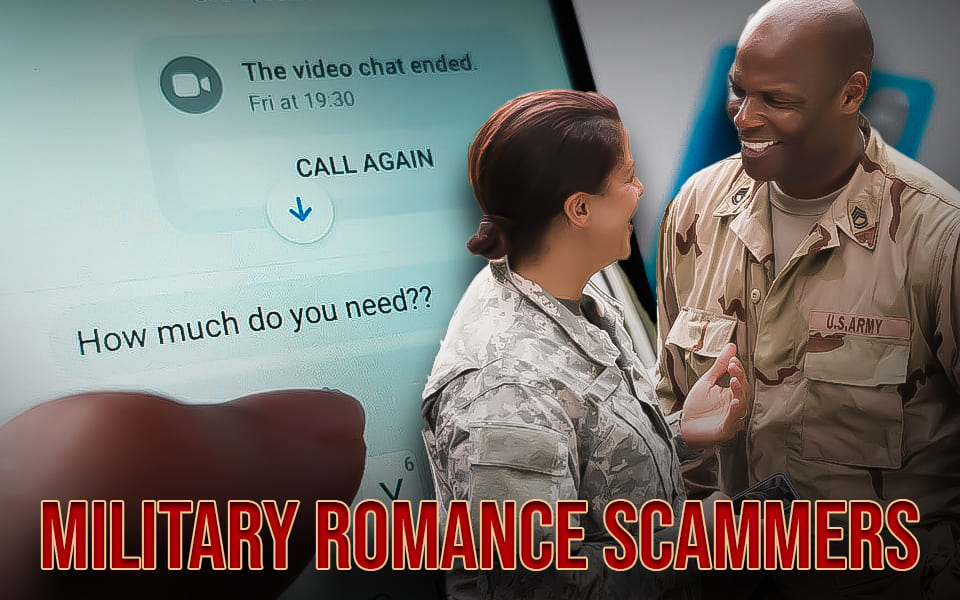



In today’s digital age, people often search for love online. Unfortunately, this shift has also given rise to a distressing trend known as military romance scams. Exploiting the trust and admiration people have for the military, scammers often impersonate service members, to deceive unsuspecting individuals searching for love and companionship. These fraudulent schemes not only lead to emotional heartbreak but also cause significant financial losses. Understanding the tactics employed by these scammers and learning how to protect oneself is crucial in combating this growing threat. In this article, we delve into the world of military romance scams, shedding light on the methods employed, the impact they have on victims, and most importantly, providing practical guidance on how to identify and avoid falling victim to these fraudulent schemes. By raising awareness and sharing valuable insights, we aim to empower individuals to navigate the online dating landscape with caution, safeguard their hearts, and protect their finances from the clutches of military romance scams.
A military romance scam entails a deceptive online scheme that entails individuals assume the identities of military personnel and establish fabricated profiles on dating platforms or social media channels their primary objective is to target unsuspecting individuals seeking companionship or romantic relationship, with the ultimate intention of manipulating them for financial gain.
The Military romance fraud scammers employ appropriated photos and personal data belonging to genuine military members and aim to create an illusion of authenticity and trustworthiness within their profiles. Often, they assert to be deployed on overseas military missions or stationed in remote locations, leveraging these circumstances to evoke urgency, sympathy, or admiration from their prospective victims. Once an emotional connection is established with their targets, the scammers employ various strategies to exploit their sentiments and induce them into providing financial assistance or divulging personal information. They claim to need financial assistance for medical bills, travel expenses to visit their loved ones, or to facilitate their return home from deployment.
Capitalizing on patriotic sentiments and the profound respect accorded to the armed forces, the perpetrators skillfully exploit the trust and reverence associated with military service. Regrettably, funds sent by victims are seldom allocated for the professed purposes, as the scammers promptly abscond once they have secured their ill-gotten gains.
Military scammers employ a range of techniques to deceive individuals and gain their trust. The following are common tactics employed by these scammers:
Here are some warning signs to watch out for that may indicate you are dealing with a romance scammer:
To avoid a military romance scammer it is important to check if the soldier you met online dating app is real or not. Here are the questions to ask a potential romance scammer which will help you to gather information and identify a fake military id:
-Requesting their social media profiles allows you to investigate their online presence. Scammers often use fake profiles or steal others’ identities, so verifying their social media accounts can help determine if they are genuine.
-Asking for a current photo can help confirm the person’s appearance and identity. If they are hesitant to share a photo or provide excuses, it could be a red flag.
-Knowing their current location is important for several reasons. It allows you to check if their claimed location matches their IP address or phone number. Additionally, if they continuously avoid meeting in person despite claiming to be nearby, it raises suspicions.
-Gathering information about their family or close friends helps establish their social connections and provides additional avenues for verification. Scammers may struggle to provide legitimate contacts or provide vague responses.
-Requesting official identification documents can help verify their identity. However, exercise caution when handling sensitive information and ensure you are aware of privacy laws and regulations in your jurisdiction.
When dealing with a military scammer, it is important to take several steps to protect yourself and potentially recover your money. Begin by flagging the scammer’s account on the dating site, app, or social media platform where you encountered them, and promptly block their account to prevent any further contact. To establish a formal record of the incident, file an identity theft report with the Federal Trade Commission (FTC) through their dedicated website. Additionally, carefully review your financial statements for any signs of fraudulent activity. If necessary, you can also file a police report for identity theft with your local law enforcement, especially if you have identity theft protection insurance. Attempt to reverse any payments made to the scammer by following a guide on recovering money after online scams. Lastly, enhance your personal account security by updating passwords with strong and unique combinations, utilizing a password manager, and enabling two-factor authentication (2FA).
In the event of significant financial loss, it may be worthwhile to seek assistance from a legitimate fund recovery company. Financial Options Recovery specializes in recovering funds lost to these heart-wrenching scams. We have a team of experienced professionals dedicated to helping you reclaim what’s rightfully yours. With our expertise and proven track record, we navigate the complex web of financial transactions, leveraging every available resource to pursue justice on your behalf. Remember, you’re not alone – we’re here to support you every step of the way. Together, we can turn the tide against military romance scams and restore hope for a brighter future.
Though the majority of military scammers may present themselves as men, there have been cases where scammers, including women, falsely claim to be members of the military.
Military personnel receive regular pay and benefits provided by their respective governments. They are not permitted to solicit money or financial assistance from the public for personal purposes.
Yes, it is not uncommon for people in the military, including soldiers, to use messaging applications like WhatsApp.
Take a stand against Military romance scams and regain control of your life. Contact Financial Options Recovery today and let us guide you on the path to financial recovery.